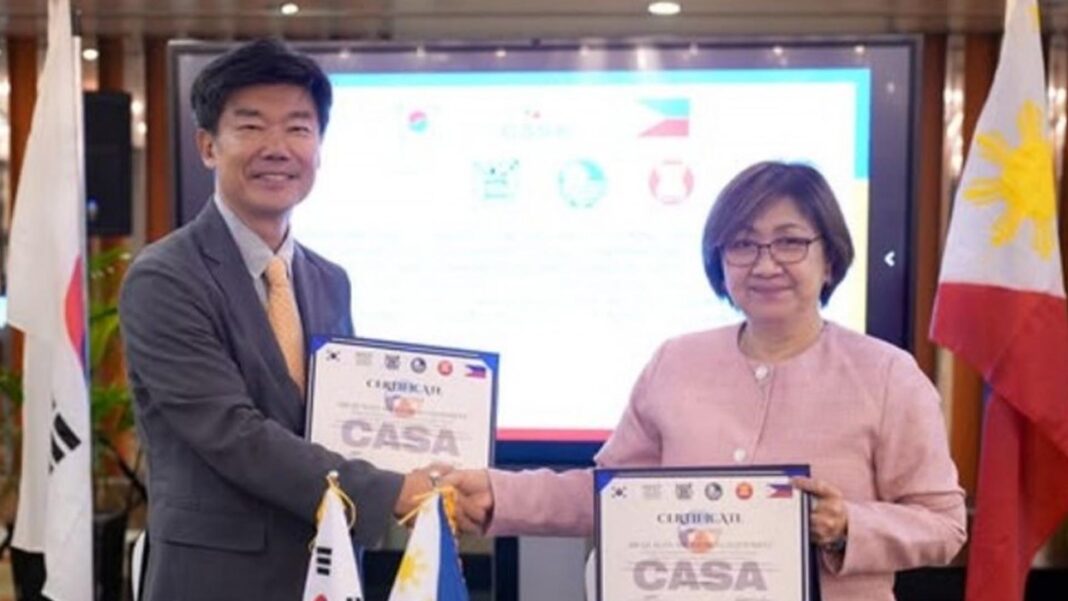The Philippines, through the Department of Environment and Natural Resources (DENR), signed a landmark agreement with the Republic of South Korea to advance air quality monitoring and improve public health.
In a news release Friday, the DENR said Assistant Secretary and Environmental Management Bureau (EMB) Director Jacqueline Caancan and Seoul National University Graduate School of Public Health Professor Kiyoung Lee, the project’s principal investigator, signed the memorandum of agreement for the Clean Air for Sustainable ASEAN (CASA) Cooperation project at the Korean Embassy.
The partnership, a two-year initiative until 2026, fuses science, technology and regional collaboration.
“By bringing together scientific research and international teamwork, the CASA project, a partnership between the EMB and Seoul National University, will create better data and monitoring systems, laying the groundwork for smarter, evidence-based policies,” Caancan said.
“This partnership strengthens our nations’ bonds and represents a shared dedication to environmental protection, making a meaningful contribution to regional sustainability efforts across the ASEAN Region,” she added.
The project, funded by the Association of Southeast Asian Nations – Republic of Korea Cooperation Fund and launched in 2023, aims to provide ASEAN member states with cutting-edge tools and expertise to build robust air quality management systems.
These include the deployment of advanced equipment, enhanced data integration and capacity-building programs tailored to local specialists
Caancan said the historic agreement brings the two nations closer to a common goal of cleaner air, and healthier and stronger communities that can withstand the current environmental challenges.
Meanwhile, South Korea also formally turned over two state-of-the-art air quality monitoring units capable of measuring fine particulate matter and ground-level ozone.
The equipment can also expand the air quality monitoring capacity of the country to capture real-time data linked to national and regional air quality monitoring platforms, while reinforcing commitment to protect public health and promote sustainable air quality management.
The DENR said these data on key pollutants are vital to developing evidence-based environmental policies and targeted interventions.
The two equipment will be installed at the Pasay City air quality monitoring station and at the central office in Quezon City.
“The CASA project, supported by the ASEAN-Republic of Korea Cooperation Fund and jointly implemented by Seoul National University and partner institutions across ASEAN, aims to identify the sources and health impacts of air pollution, strengthen monitoring systems, and develop effective policy responses,” Jung Hyun-jung, counselor of the Embassy of the Republic of Korea in the Philippines, said.
“By establishing air quality monitoring infrastructure throughout the Philippines and across ASEAN, and by harnessing scientific analysis, the CASA project will enhance ASEAN’s capacity to respond to air pollution, thereby improving the quality of life and public health of our peoples.” (PNA)


